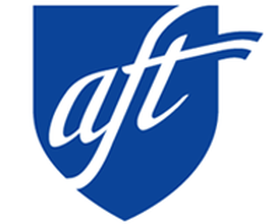"Injustice anywhere is a threat to justice everywhere. We are caught in an inescapable network of mutuality, tied in a single garment of destiny. Whatever affects one directly, affects all indirectly."
— Dr. Martin Luther King Jr., Letter from Birmingham Jail
The Hidden Human Cost of Fashion
 Rana Plaza Building Collapse
Rana Plaza Building Collapse
In this lesson, students will explore workers' rights and global supply chains. Armed with this information, your class can become more critical and thoughtful consumers. The lesson can be integrated into your curriculum in a number of ways, beginning with the Triangle Shirtwaist Factory Fire of 1911 and its impact on the growth of labor unions in the United States.
The lesson also draws upon the tragic story of the Rana Plaza garment factory in Bangladesh. On April 24, 2013, the factory collapsed, killing more than 1,100 workers and injuring another 2,500. This event was one in a long line of deadly workplace disasters in the country. At least 70 international companies have signed a Fire and Building Safety Accord that would address many of the dangerous conditions in Bangladeshi garment factories. However, many U.S. companies, including GAP and Walmart, are fighting this effort.
In the News: After three years of development, Media Voices for Children announces the availability of their high school curriculum on children's human rights, child labor and trafficking, Childhood Unbound. You can access the curriculum at this link: https://www.learnchildrights.org/the-curriculum
The lesson also draws upon the tragic story of the Rana Plaza garment factory in Bangladesh. On April 24, 2013, the factory collapsed, killing more than 1,100 workers and injuring another 2,500. This event was one in a long line of deadly workplace disasters in the country. At least 70 international companies have signed a Fire and Building Safety Accord that would address many of the dangerous conditions in Bangladeshi garment factories. However, many U.S. companies, including GAP and Walmart, are fighting this effort.
In the News: After three years of development, Media Voices for Children announces the availability of their high school curriculum on children's human rights, child labor and trafficking, Childhood Unbound. You can access the curriculum at this link: https://www.learnchildrights.org/the-curriculum
Step 1: Hook -- Who Makes Your Clothes? (5 minutes)
|
Begin this lesson with a simple statement: Check the labels in your clothing or shoes to see which country they were made in. Alternatively, you could display several articles of your own clothing that are made in various countries.
Then, write the countries of origin on a whiteboard/chalkboard or note them with pins on a map. Ask students why they think clothes sold in the United States are made in other countries and determine a list of possible pros and cons. After the lesson, return to and refresh the list of reasons. |
Step 2: Videos and Other Teacher Resources (10 minutes)
|
|
Begin the lesson with an AFT-produced video on the left (3:15) in which young people discuss how knowledge about product manufacturing affects their buying habits. Students can also see the conditions in Bangladeshi factories first-hand in this NBC exposé (2:03) about the Rana Plaza factory collapse. You can also show your students In Pictures: Recounting the Horrors of Rana Plaza by Al-Jazeera. Finally, this PowerPoint presentation provides facts about working conditions and wages in Bangladeshi sweatshops.
Have your students complete this role-playing exercise that asks students to put themselves in the place of a GAP executive trying to make decisions about manufacturing in Bangladesh. Be sure to read about the Accord on Fire and Building Safety in Bangladesh as background. Since the Rana Plaza factory collapse, 41 people have been charged with murder in relation to the building collapse and the death of more than 1,100 people. Al-Jazeera more recently published an article "Rana Plaza, Three Years Later: Who Has Paid?" that provides an update on the ongoing court procedures. Your students can also read this report from Human Rights Watch about Workers Rights in Bangladeshi Garment Factories. |
Step 3: Standards-Based Exercise: Song Lyric Analysis (15 minutes)
|
Enhance your students' critical thinking skills by asking them to use this worksheet to explore the song Are My Hands Clean? (3:02) by the musical group Sweet Honey In The Rock. Lyrics can be downloaded here. Students should answer the first question on the worksheet before they read the lyrics.
Then, have students listen to the song and read the lyrics to answer remaining questions. As an extension activity, ask students to write an additional song stanza about Bangladesh. |
Step 4: What Can Students Do? (10 minutes)
|
Consumers have power to affect the way goods are made. Young people are a valued target market for fashion manufacturers and can greatly impact their decision-making through a variety of methods. Encourage your students to use that power by writing a letter to call on GAP Inc. to sign the Fire and Building Safety Accord.
Students may write to their Senators and Representatives to cosponsor the bicameral resolution (H.Res.683 / S.Res.426). Students can also use social media to contact other U.S. retailers that have not signed the accord. Your students can also support working women in supply chains through the International Labor Rights Forum. |
Additional Resources
|
AFT Resources
|





